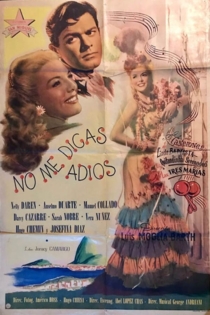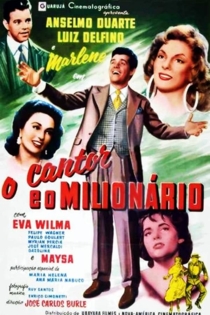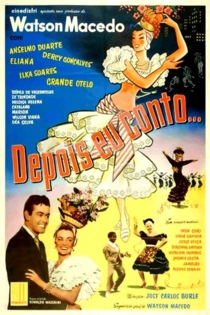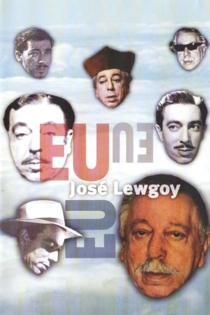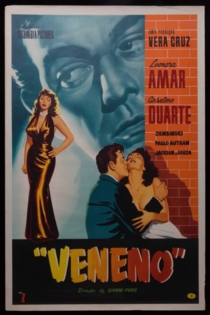
Anselmo Duarte
1920 - 2009Initially known as a leading man in popular musical comedies (known in Brazil as "chanchadas"), he debuted as filmmaker in 1957's "Absolutamente Certo", in which he also stars. His next film, "O Pagador de Promessas" (1962), adapted from a stage play by Dias Gomes, won the Golden Palm at the 1962 Cannes Film Festival. It is, to date, the only Brazilian feature film to be so distinguished and the first Cannes' Southern Hemisphere Golden Palm for best feature film.
Duarte was awarded with the Order of The Cultural Merit, Brazil's highest cultural civilian honor, and with the Order of Ipiranga, which is the state of São Paulo's highest civilian honor. He was also awarded with titles of merit citizenship by numerous Brazilian municipalities including Rio de Janeiro, São Paulo and Salto, his birthplace. In 2009, the municipality of Salto inaugurated a multimillion-dollar cultural and educational center named "Centro Cultural e Educacional Anselmo Duarte", housing a 500 audience amphitheater for film and theatrical events. The center also displays for public view the original "Golden Palm" awarded to Duarte at the 1962 Cannes Film Festival. n 2008, at 88, Duarte founded a cultural organization (Instituto Anselmo Duarte) dedicated to restoring selected Brazilian films and creating special, free of charge, educational projects aimed at young filmmakers to improve their technical filmmaking skills. After his death, his son, Ricardo Duarte, 69, became the institute's president.
Upon being diagnosed by suffering Alzheimer's dementia in 2002, Duarte spent his last 7 years of life under the care of his son, Ricardo, and his grandchild, Daphne, a preeminent Brazilian artist. Anselmo had 4 children.
Reaching stage 6 on his Alzheimer illness condition, a bladder cancer was detected which led to a severe blood hemorrhage, precipitating a heart stroke. Although both the bladder cancer and heart conditions had been successfully treated, a sudden massive hemorrhagic brain stroke left the legendary Brazilian actor and filmmaker in a coma for 6 days, which led to his passing on November 7, 2009.
Description above from the Wikipedia article Anselmo Duarte, licensed under CC-BY-SA, full list of contributors on Wikipedia.
O Pagador de Promessas
Anselmo Duarte
Leonardo Villar, Glória Menezes
Zé is a very poor man whose most prized possession is his donkey. When his donkey falls terminally ill, Zé makes a promise to Saint Bárbara: If his donkey recovers, he will carry a cross - like Jesus - all the way from his city to Saint Bárbara's church, in the state capital. Upon the recovery of his donkey, Zé leaves on his journey. He makes it to the church, but the priest refuses to accept the cross once he discovers the context of Zé's promise.
The Given Word

The Case of the Naves Brothers
Luiz Sérgio Person
Raul Cortez, Juca de Oliveira
After their relative and associate runs way, the Naves brothers inform the police of the incident, who end up arresting them under the accusation of murdering the missing person. The brothers are tortured in order to confess a crime they did not commit while their wives are raped.
The Case of the Naves Brothers

O Homem Que Engarrafava Nuvens
Lírio Ferreira
Caetano Veloso, Maria Bethânia
A host of personalities reminisce about the life and work of songwriter, lawyer, and congressman Humberto Teixeira — aka "Baião Doctor" — the author of such classic Brazilian popular songs as "Asa Branca". A musical film about the baião, a movement in Brazilian music in the 1940s and 1950s that was later snowed under by samba and bossa nova.
The Man Who Bottled Clouds
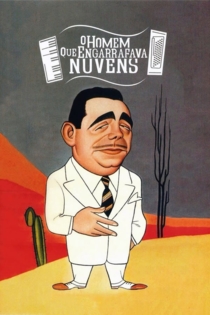
Vereda da Salvação
Anselmo Duarte
Raul Cortez, José Parisi
In the Brazilian countryside, poor sharecroppers join a messianic group led by Joaquim, who believes he is the reincarnation of Jesus Christ. Gaining power over the peasants, he begins to persecute those who do not pay absolute obeisance.
The Obsessed of Catulé

Sinhá Moça
Oswaldo Sampaio, Tom Payne
Anselmo Duarte, Eliane Lage
In 19th century Brazil, young people in the State of São Paulo fight against black slavery and the farmers who support it. Against this backdrop, Sinhá Moça falls in love with a young lawyer, and they get involved in a great love story.
The Landowner's Daughter
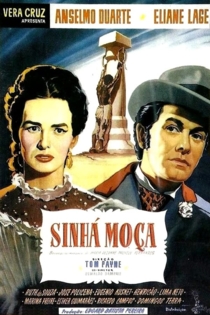
O Caçula do Barulho
Riccardo Freda
Oscarito, Grande Otelo
In a workshop there are six workers, the six are brothers. Enter the mother who asks them to rescue the seventh brother, the youngest, Luis. The brothers hesitate because the youngster keeps getting into trouble, but they end up giving in to the request. Gangsters are fighting in a bar and the workers end up getting into the fray.
O Caçula do Barulho

